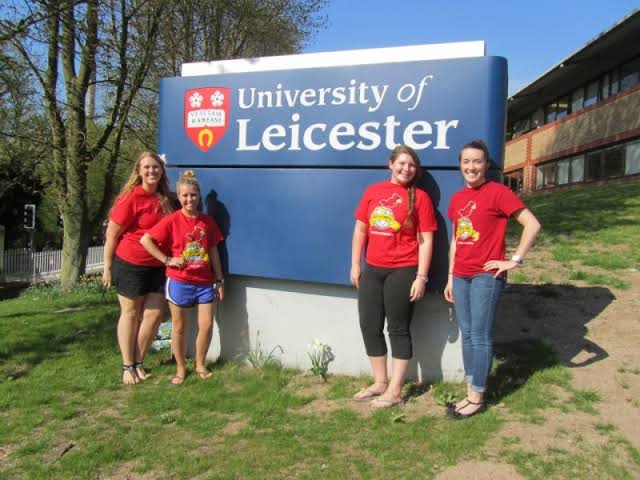Medicine MBChB
There has been a Medical School at the University of Leicester, teaching the MBChB Medical Degree for more than 40 years. Our experience ensures an excellent standard of teaching and a supportive community and our excellent modern facilities provide a state-of-the art learning environment.
We have revised our curriculum to make it even more patient-focussed. Our course is designed to be clinically relevant throughout and integrates your learning, enabling you to acquire the medical knowledge and professional competencies that are essential to practise medicine effectively. You will have hands-on experience , working with real patients from the beginning.
Throughout the course you will learn from expert academics and medical practitioners working at the sharp end of the NHS. Their teaching is directly influenced by their expertise in such diverse fields as heart disease, cancer and genetics – some of the areas where Leicester's reputation is truly global.
Our new curriculum is designed to prepare future doctors to meet the challenges of healthcare in the 21st Century. When you graduate you will take forward the knowledge, skills, attitudes and values that are required to practise medicine effectively and successfully, and will be prepared for the inevitable changes in practice that will occur in the future.
Intercalated BSc
As part of your degree, you can take an Intercalated BSc (iBSc) as a one year course after the second or third year of your Medical Degree. Alternatively you can take an Intercalated MSc (iMSc) in Medical Research after your third year. Either of these will extend your overall degree to six years.
As part of your medical course, you can apply to take an extra year and intercalate to take an additional degree. You can choose our iBSc in Biomedical Sciences, or iBSc in Psychology, which focuses on Human Behaviour. An iBSc can be taken after completing two years of medical school, or at a later stage. Alternatively you can take an Intercalated MSc (iMSc), for example our iMSc in Medical Research, after either your third or fourth year. Studying an intercalated degree outside Leicester is also permitted.
Intakes
- Jan Deadline: Oct
Application Processing Time in Days: 28
Minimum English Language Requirements
| English Level Description | IELTS (1.0 -9.0) | TOEFL IBT (0-120) | TOEFL CBT (0-300) | PTE (10-90) | |
|---|---|---|---|---|---|
| Expert | 9 | 120 | 297-300 | 86-90 | |
| Very Good | 8.5 | 115-119 | 280-293 | 83-86 | |
| Very Good | 8 | 110-114 | 270-280 | 79-83 | |
| Good | 7.5 | 102-109 | 253-267 | 73-79 | |
| Good | 7 | 94-101 | 240-253 | 65-73 | |
| Competent | 6.5 | 79-93 | 213-233 | 58-65 | |
| Competent | 6 | 60-78 | 170-210 | 50-58 | |
| Modest | 5.5 | 46-59 | 133-210 | 43-50 | |
| Modest | 5 | 35-45 | 107-133 | 36-43 | |
| Limited | 4 | 32-34 | 97-103 | 30-36 | |
| Extremely Limited | < 4 | < 31 | < 93 | < 30 |
Admission Requirement / Eligibility Criteria
If you have completed the standard XII awarded by the CISCE/CBSE, or another recognised state exam board, with at least 75% overall, you may be considered for admission to a first year Bachelors degree. For many courses at the University of Leicester, you will need 80% overall or higher, along with higher individual marks of 85% in relevant subjects. If you are studying A-levels or the International Baccalaureate (IB) then you can begin from the first year of a Bachelors degree. Please see inidvidual course pages for entry requirements. If you have already completed the first year of an undergraduate degree at an Indian university, you may be considered for entry to the first or second year of a Bachelors degree if you have studied relevant subjects and/or modules. We also have progression arrangements with some partner institutions in India, which allow advance entry to certain University of Leicester courses. Please contact the International Office for further information. If you do not meet the entry requirements for one of our courses, you can apply for an International Foundation Year run by the Global Study Centre. The GSC provides academic support to help you progress to your chosen undergraduate degree at the University of Leicester.
- Course Type: Full Time
- Course Level: Bachelors/UG Degree
- Duration: 05 Year
-
Total Tuition Fee:
166420 GBP
Annual Cost of Living: 9207 GBP
Application Fee: N/A
Similar Programs
- Psychology with Cognitive Neuroscience BSc at University of Leicester
- Psychology BSc with Year Abroad at University of Leicester
- Psychology BSc at University of Leicester
- Physiotherapy BSc at University of Leicester
- Physics with Space Science MPhys with Year in Industry at University of Leicester
- Physics with Space Science MPhys with Year Abroad at University of Leicester

